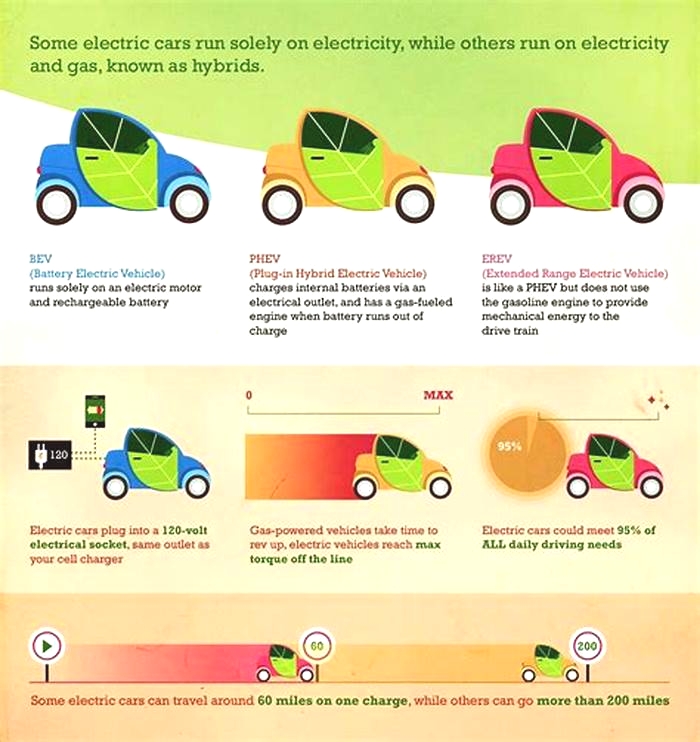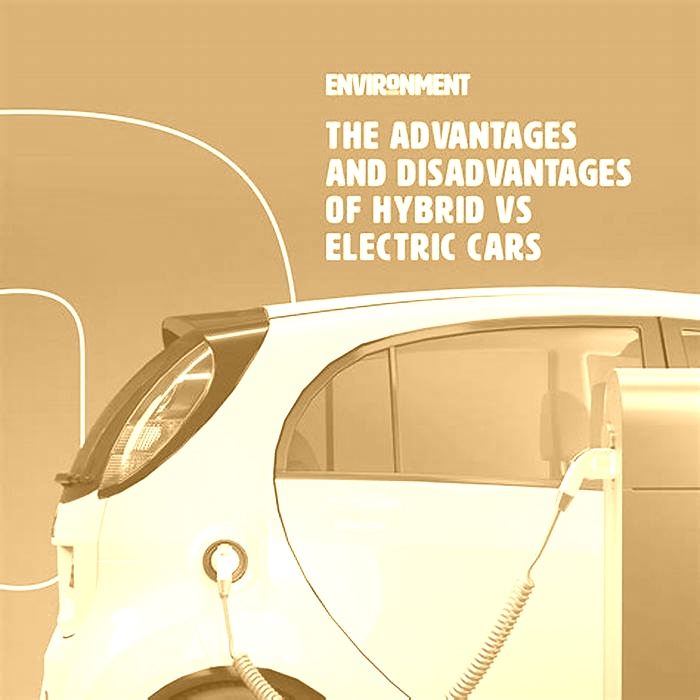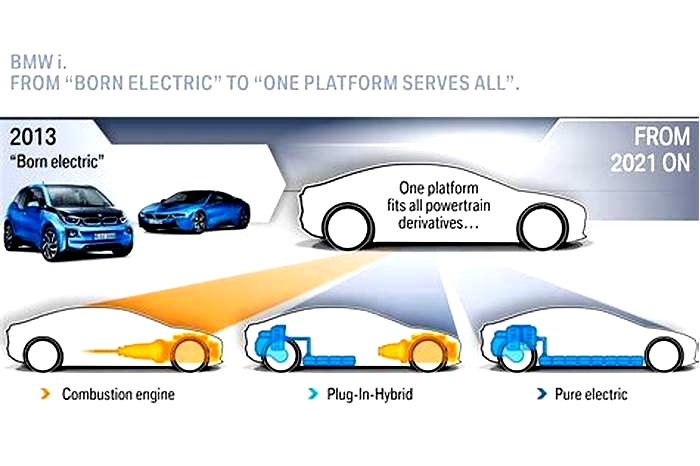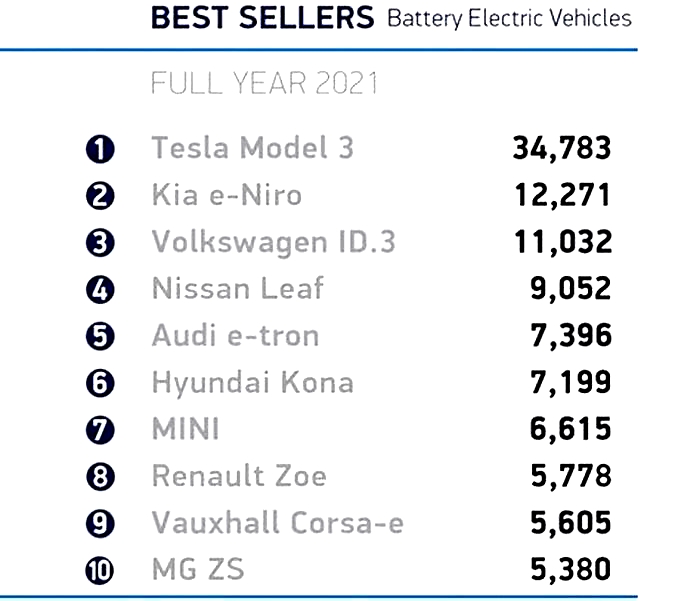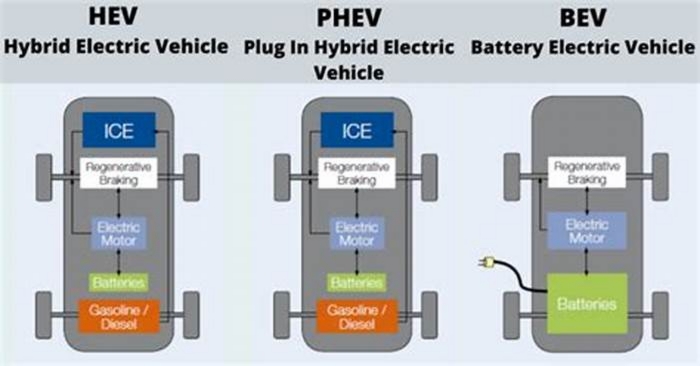Why not hybrids instead of EV
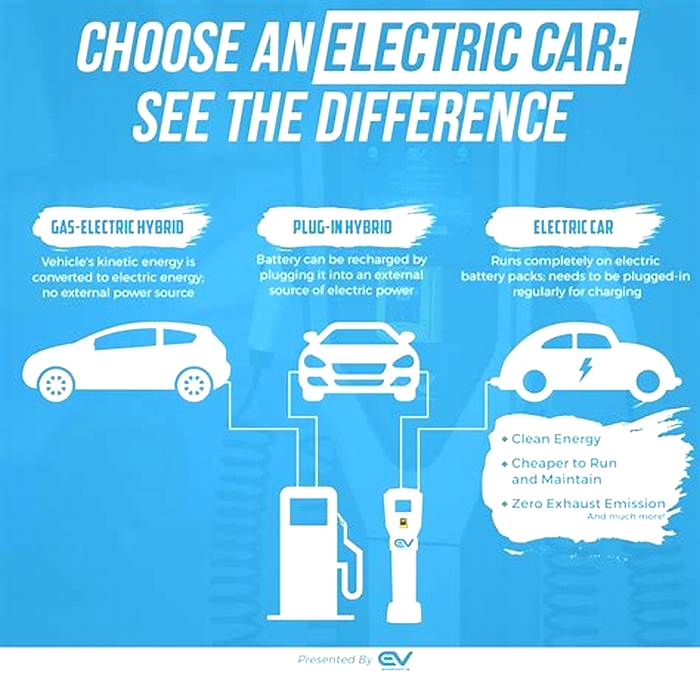
I'm buying a hybrid instead of an EV for my next car here's why
I had planned for my next car to be an all-electric model. But, after years of driving a gasoline-powered ride my move to an EV, like everything else in these troubled times, is looking a little less certain. A combination of rising gasoline and electricity prices means I dont feel as though I can choose one side or the other.
In short, a compromise needs to be reached. I already ruled out a regular hybrid, which has no plug-in capabilities and means you don't get any of the same benefits as an electric vehicle. But after driving the Lexus NX 450h+ plug-in hybrid for a week, Im starting to see the appeal of a plug-in hybrid (PHEV) and the ability to switch between electric power and internal combustion in a single set of wheels.
The luxury SUV can do over 40 miles on battery power alone. That makes it perfect for short drives around town, while the smaller battery means charging is quick and easy.
Longer runs can be achieved in comfort, and without stress, thanks to the super smooth 2.5-litre gasoline engine. The way I see it, this is the best of both worlds. And, by using the car strategically and initiating those short charging sessions at cheaper times of the day, I may even be able to save some money on running costs.
So if the price of gasoline is getting too much for you, and youve considered going fully electric, be sure not to discount a PHEV simply because it sits in the middle ground.
Theres loads of choice if you want a PHEV
The Lexus NX 450h+ plug-in hybrid is a mid-sized SUV, so its well suited to family use. Theres space, comfort and lots of tech. However, if youre looking for a plug-in hybrid there are options in every model class. In fact, compared to battery electric cars, there are significantly more hybrid options available
The BMW 330e is great, for example, if you love the endless appeal of the 3-series but want to enjoy the benefits of PHEV motoring. For those interested in beefier Germanic motoring, the BMW X5 xDrive45e delivers a similar experience to that of the Lexus.
But its possible to pick a PHEV to suit any kind of need. Audis A7 55 TSFI e Quattro Plug-In Hybrid is a solid choice sedan offering space and luxury, while Toyotas RAV4 is a fun and funky option too. Hyundais Sante Fe plug-in hybrid or Kias Niro Plug-in hybrid both tick the right boxes for people after value for money.
Even the likes of Jeep, whose first EV isnt due until sometime in 2023, has PHEV options at your disposal with the likes of Wrangler or Cherokee. Even Bentley, one of the kings of premium motoring, offers a Bentayga Hybrid if your wallet can handle it.
Charging is easier, and performance is top notch
The great thing about a plug-in hybrid is just that, you can plug it in at home and charge the battery overnight. That might mean cheaper charging, depending on your electricity provider, and is certainly more convenient than having to plug in a much larger EV battery. Particularly if installing a home charger isnt an option for you.
That said, Lexus recommends having a home wall box installed. With access to the dedicated EV charging port, fully charging the NX 450h+ takes a very reasonable 2 hours and 45 minutes.
Lexus also claims you can squeeze around about 42 miles out of the battery in a worst case scenario, and up to 55 miles in urban situations. Daily trips into town, or running errands mean all-electric usage makes perfect sense. I also found the car to be enthusiastic in the performance department when driving on electric power alone. The Lexus will reach in excess of 80 mph if the need arises, and all without having to burn a drop of gasoline.
In fact, the Lexus proved to be sprightlier than Id been expecting. The 18.1kWh lithium-ion battery is quite beefy, while the plug-in setup means you still get 302bhp. This is most noticeable when you put your foot down, with Lexus figures stating that 0-62 mph arrives in just over six seconds. Not bad for a heavyweight SUV.
Theres more potential for squeezing the best and most efficient level of motoring from the Lexus too. The guy who dropped the car off pointed out the ability to switch the EV mode, letting you decide if you want to drive on battery power alone, or use the engine to help restore battery power on longer trips.
The main thing to ensure the best money-saving return, though, is to get in the habit of recharging regularly as is the way with any PHEV.
Hybrids have no range anxiety concerns
Another distinct benefit of driving a plug-in hybrid is theres no range anxiety, no matter which way you look at things. There are plenty of people out there that would argue that range anxiety is a non-issue, but Ive had enough stress-filled journeys in pure EVs to know it can be a problem.
Therefore, having the backup of a petrol engine is a big deal, because if you need to go on a longer run you just jump in and drive. Driven carefully, the Lexus NX 450h+ has the potential to go over 300 miles if you exploit both the full gas and electric potential.
So while electrical power is perfect for all the short journeys you might do around your local area, you can still make the longer trips without having to stop and wait to recharge along the way.
Whichever way you look at it, the ability to utilize electric power somewhere along the way can save you precious dollars. Whether you use up that power getting yourself onto the highway, or save it to get yourself around when you actually reach your destination. Alternatively you could also mix and match, because the key takeaway here is that the driver gets to choose.
And that gives you an advantage when it comes to refuelling. The gas tank, as any driver will know, only takes a few minutes to refill, plus the Lexuss battery is small enough that it doesnt take an age to recharge. Thats especially useful if you find yourself heading somewhere with a free charger, like the supermarket.
Hybrids can offer a money-saving special
With energy prices skyrocketing, and with no sign of slowing down anytime soon, not spending money unnecessarily seems very sensible right now. The plug-in hybrid definitely proves to be a good choice over a traditional model, particularly since the plug-in models have the ability to drive while only using electric power.
Not only does this help you lower your personal emissions, which is a benefit from an environmental standpoint, it also means lower running costs. Energy prices may be spiking, but electrical power is still cheaper than the equivalent amount of gas. Even the U.S. Department of Energy says so.
A plug-in hybrid may still have a gas tank, but the fact you're not beholden to it means youre in a much better position than if you had a regular car.
Plus the fact hybrids have lower CO2 emissions means therell be less to pay when tax season comes around. Here in the U.K. you would find yourself paying less vehicle tax with a hybrid, while driving one for business purposes could offer further savings. The BIK (Benefit In Kind) rate, for example, shaves money off running costs for company car owners with CO2 emissions of 20g/km, amounting to a 7% BIK rate in the case of the Lexus.
Likewise in the U.S., just like fully electric vehicles, plug-in hybrids are eligible for the federal income tax credit. In some cases, like that of the Lexus NX 450h+, you can claim the full $7,500 back when the IRS comes calling. Though how much you can claim is all dependent on the cars battery specs.
Bottom line
Choosing those charge times carefully and exploiting the versatile potential of the PHEV's battery and petrol engine combination can help you save cash. And, with fuel and energy prices on the rise, it pays to do everything you can to drive smarter.
Fully-electric cars do have some benefits that even a plug-in hybrid cant offer, like the lower cost of routine maintenance. But youre also beholden to the whims of charging infrastructure and longer recharge times especially on longer trips. And thats why Im going to hold onto gasoline for a little bit longer, and getting myself a PHEV.
So if youre in the market for a family-flavoured SUV but, don't fancy something like the Audi Q5, BMW X3 or a Mercedes-Benz GLC say, then the super-smart Lexus NX 450h+ could be an ideal alternative.
The Hybrid-Car Dilemma
Produced by ElevenLabs and News Over Audio (NOA) using AI narration.
This article was featured in the One Story to Read Today newsletter. Sign up for it here.
Michael Treiman is something of a professional electric-vehicle evangelist. As the vice president of sales for ChargeSmart EVa company that sells electric charging stations, mostly to businesses and municipal officeshis job is to convince people that EVs are the future, and that its time to start planning for them. But on his personal time, you wont find him in an electric car. Or, rather, a fully electric car: He owns a 2022 Chrysler Pacifica plug-in hybrid. For his family of five, he told me, none of the few three-row electric SUVs for sale right now can match what the hybrid minivan can do. With the Pacificas small battery that powers the car for short trips and boosts its MPG, we have gotten over 1,500 miles out of a single tank of gas, he said.
The humble hybrid is having a moment. While this year is shaping up to be the biggest year for EV sales America has ever seen, it has also been marred by staggering production challenges and uneven demand from consumers. Americans are still wary of electric vehicles higher prices, limited battery ranges, and inadequate local charging infrastructure. As a result, some carmakers are dialing back their electric sales goals, battery-plant plans, and even the tough love they once had for car dealers reluctant to go all-in on EVs. Meanwhile, hybrid sales are growing at a rate that slightly outpaces EV growth, according to the U.S. Energy Information Administration. Hybrids now make up nearly 10 percent of new car sales, a proportion thats more than doubled since 2020. Unlike EVs, hybrids burn gasoline and create tailpipe emissions, but they generally create far less tailpipe pollution than their purely gas counterparts. The latest Toyota Sienna minivan, for example, comes only in hybrid form and has nearly half the CO2 emissions of its non-hybrid predecessor.
Given this surge in popularity, you might think that every carmaker would be eager to offer more hybrids to customers who are looking to lower their carbon footprint but who feel unable to make the full leap to EVs. Nope. Enter what you might call the hybrid dilemma. Faced with enormous costs pivoting their businesses to make EVs, strong sales for gas cars, and shareholders who demand profitability, the auto industry cant decide whether hybrids are a bridge to an all-electric future or a dead end. At some point, Americans may still want hybrids while carmakers have already moved beyond them.
The problem carmakers face is that hybrids involve all the complexities of internal combustion and battery power put together. Building them takes a lot of time and a lot of money, Sam Fiorani, the vice president of the industry research firm AutoForecast Solutions, told me, but a lot of their money is focused on electrifying vehicles. Diverting some of that money back into hybrid powertrains slows your transition to where you ultimately want to be. In 2021, General Motors alone announced a $35 billion investment into electric- and autonomous-vehicle development, including new plants to make EV batteries. Thats more than three times the profit it made in 2022. When youre staring down such monumental costs and the eventual death of internal combustion, why spend money to develop and build hybrids that still need gas engines when you can put all those resources into EVs instead?
Carmakers have varying levels of commitment to an all-electric future, yet theres somehow even less industry consensus about hybrid cars. Some hybrids work in much the same way as the original Toyota Prius from 20 years ago, combining a traditional gas engine with an electric motor. Others, like Treimans Chrysler Pacifica, can plug in to charge just like an EV, further limiting their gas usage. Take Ford, which recently dialed back its EV production goals and is focusing more on hybrids. Ford is doubling the production of its hybrid model F-150, for example, which is proving to be more popular than its fully electric sibling. Then theres Stellantis, the parent company of brands including Jeep and Ram, which builds Americas best-selling plug-in hybrid car while also offering some EVs. The hybrid champion is still Toyota; it recently announced that the ubiquitous Camry sedan would soon be offered only as a hybrid as the company moves to basically hybridize its entire lineup of cars.
But GMs CEO, Mary Barra, has said the plan is to skip a half step and bypass hybrids entirely to go straight to EVs. Volkswagen has been similarly reticent on the hybrid front and is still debating whether to sell them again in America. After discontinuing one hybrid recently, Subaru is set to offer just a single other option, the upcoming Forester hybrid, but that wont even be on sale until 2025. Mazdas sole hybrid option is a large SUV that starts at nearly $50,000, nearly double the price of the cheapest new Toyota Prius. Even Honda, another pioneer in the hybrid space, is down to two hybrid models, though a third is coming soon.
Caught in the middle are consumers who just want to save money on gas, but perhaps have fears about going fully electric or cant stomach the cost of EVs. Rob Einaudi, an entrepreneur in Bellingham, Washington, told me hed only want to lease, rather than buy, an EV right now, given how quickly everything from their range to what charging port they use is changing. You dont want to be caught with old technology, he said. Part of the challenge here is that Americans have a bad habit of making choices about a car that might last a decade-plus based on costs at the pump that definitely wont last that long. (The total number of hybrid models available actually dipped in the mid-2010s as gas prices went down, and only in recent years has started to rise again.)
For automakers, getting their car lineups to match up with rapidly changing consumer trends, gas prices, and their competition can be a nearly impossible task. Adding to the complexity is the fact that the stock market looks at legacy automakers as poor investments, Fiorani said. After all, the electric-car revolution goes hand-in-hand with the tech-focused transformation of the car industry. Automakers are eyeing revenue from software features, downloads, new apps, and, eventually, self-driving vehicles. It is hard to square any of that with investments into something as antiquated as the internal combustion engine. Investors see the sky-high returns from Tesla, which produces only electric cars, and want other car companies to follow suit. The right answer would have been a more gradual transition to EVs through hybridization, Fiorani said. But looking at it from a financial perspective, those [investors] want you to be fully electric. The two are working against each other.
For now, more kinds of hybrids are coming soon to meet the new demand. That includes a broader lineup of hybrid Toyota SUVs as well as more novel cars like the 2025 Ram Ramchargera hybrid with a V6 engine that is more like a full EV than any other gas-burning truck available right now. Perhaps more automakers will hop on the hybrid bandwagon until most, if not nearly all, gas-burning vehicles have some form of electric power. That would help cut emissions until EV-charging networks are up to par. Or the rapidly falling cost of battery packs could soon make EVs comparable pricewise to, or cheaper than, gas cars. By that point, it wouldnt make much sense for automakers to continue investing in hybrids.
Those are the most optimistic scenarios. The current status quoa mix of different vehicle types for different needscould persist and push us into a world in which hybrids dont do enough to mitigate our carbon problem. If car companies give up on hybrids before EVs become affordable and easier to charge, many consumers could simply opt for more gas vehicleswhich isnt great for the climate. Or, if automakers lean on hybrids for too long, they run the risk of delaying the EV transition entirelywhich also isnt great for the climate. The electric transition may be inevitable, but its going to be messier, weirder, and more protracted than many would like to admit.
This story is part of the Atlantic Planet series supported by HHMIs Science and Educational Media Group.

